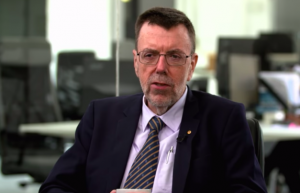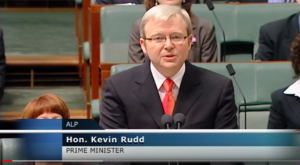God is Good for You – A Defence of Christianity in Troubled Times – Greg Sheridan
Published: Alen and Unwin (2018)
 A political journalist looks at the impact of Christianity in the West
A political journalist looks at the impact of Christianity in the West
This is an unusual book, possibly unique- a best selling secular book written in defence of Christianity! Greg Sheridan is the foreign editor of the Australian and he writes with a great deal of insight, knowledge and perceptivity. This book is superbly written, fascinating and gives a real insight into the impact of Christianity upon the West and also how we as Christians are perceived by others. Sheridan is clearly well read and has an empathetic and sympathetic understanding of his subject. His book is a mine of information. The chapter on the faith of politicians is particularly enlightening as is the chapter on Signs of New Life in the church in Australia. (I found it intriguing and encouraging that he cites the work of my friend Steve MCAlpine in Perth so favourably). Although at times I found the book frustrating, because it gets so close and yet sometimes seem so far, for example at points he seems to have a view of Christianity which is a kind of moralism) overall it is one of the most insightful and interesting books that I’ve read in a long time. Much to think about and work with. Well worth reading…..it’s little wonder that it has caused quite a stir in Australia….I wonder if such a book could have been written in this country by a major journalist or would that be considered career suicide?
There are some great quotes some of which are below:
Quotes
Typically, where the elites lead, the public ultimately follows, because the elites supervise education and create most of the public culture (page 7)
If you don’t like the religious right, wait till you meet the post religious right. (Ross Douthat – New York Times columnist).
In Charles Murray’s seminal study of the white underclass in the US, Coming Apart, he

reports that the last thing that holds working class and impoverished communities together is the local churches. When they collapse, the communities collapse. (Page 27).
Doubling the rate of religious attendance raises household income by 9.1%, decreases welfare participation by 16% from baseline rates, decreases the odds of being divorced by 4% and increases the odds of being married by 4.4%.” ( page 26. The US National Bureau of Economic Research – is religion good for you? 2017)
“it is more rational to believe in God than believe there is no God. Belief in God is much more rationally appealing than atheism. The resting place of the mind, its natural equilibrium, as it were, is belief.” (Page 35)
“a commonsense interpretation of the facts suggest that a super intellect has monkeyed with the physics“. ( Fred Hoyle – Page 49).
“I believe in the inerrancy of Scripture… But I cannot see that anything Scripture says, in the first chapters of Genesis or elsewhere, bears on the biological theory of evolution one way or another… Scripture was given to reveal God, not to address scientific issues in scientific terms, and… as it does not use the language of modern science, so it does not require scientific knowledge about the internal processes of God’s creation for the understanding of its essential message about God and ourselves.” (J I Packer Page 55).
“If my mental processes are determined wholly by the motions of atoms in my brain, I have no reason to suppose my beliefs are true… and hence I have no reason for supposing my brain to be composed of atoms. (JBS Haldane – page 59).
“The Christian prejudice was always in favour of the marginalised. Emperor Constantine outlawed the branding of criminals because men were made in the image of God.” (Page 115)
“When a man disdains to be the equal of his fellowmen, he becomes like an apostate angel” (Pope Gregory the great at the start of the seventh century – page 116)
“The Truth that saves must be valuable for life… Unless it sways the life and thought of the man who receives it, it is nothing.” (Alfred Deakin, 1905 – p.171).
Just get the trains to run on time and we’ll take care of the meaning of life ourselves was something like the Australian attitude.” (Page 173).
I have always been more interested in religion than politics.” (Tony Blair – page 206).
 Does atheism explain the universe, life, including human life, consciousness and conscience? Hyper- rational atheism gave us Nazism and doctrinaire Soviet communism. Ultra-rationalism does not deliver you any moral compass. (Kevin Rudd- Page 216).
Does atheism explain the universe, life, including human life, consciousness and conscience? Hyper- rational atheism gave us Nazism and doctrinaire Soviet communism. Ultra-rationalism does not deliver you any moral compass. (Kevin Rudd- Page 216).
If we abandon God, and the ethical imperatives that proceed from that, we are in danger of ending up in an amoral morass, where the sort of technocratic debates about whether certain human beings should be regarded as sharing a common humanity, like the Soviet purges of “enemies of the people” or the Nazi’s belief in the expendability of certain races, most particularly Jews, become possible. You then land in an amoral jungle, animated only by some mud- begotten social Darwinianism. This is because there was no longer a guiding moral authority. These regimes could “reason” their way to any conclusion.” (Kevin Rudd – page 217).
The only truly acceptable contemporary Christianity for Western political culture now seems to be a Christianity which doesn’t mention God and which subscribes to conventional elite wisdom on policy issues (page 226).
The rule of law came out of a Christian mindset and defined the West. The enemies of the West still define the West that way. Human rights have degenerated into identity politics. We are living now in a post-Christian society but still living on the legacy of Christianity and that legacy is running down. This could end in chaos. For society to work you’ve got to have agreement about basic rules. You want your rights but you have your responsibilities too. If we don’t have consensus on the basic rules are we will find it hard to live in a society with each other… That is a matter of great concern to me. I’m very concerned about where this experiment of being a post-Christian society will end. It’s an experiment. We haven’t been there before. (Peter Costello – page 229).
Part of being an atheist is not wanting to feel gratitude to anybody. I just find it a deadening approach. Atheism is also about not wanting to feel answerable to anybody. (Peter Costello – page 230).
When your neighbour starts quoting the Bible, start counting your cattle. (Lynton Crosby – page 241).
The five qualities that post-modernism lacks our depth, coherence, meaning, authenticity and originality. (Page 269).
They are an intriguing pair partly because they are trying to confront the decline of Christianity and the rise of militant secularism directly in their pastoral, church planting work. There are a version of what I think maybe the best combination on offer – theological conservatives and operational pragmatists with strong situational awareness, as the military might say. (Speaking of Shiner and Steve McAlpine – page 278).
We are combining conservative theology with radical ecclesiology. We are looking for porous ways of bringing people in at the boundaries. (Steve McAlpine – page 281).
What struck me about Rod was that he was on fire with a passionate belief in Christianity. This belief was friendly but it was also unselfconscious, unapologetic. There was no defensive clearing of the throat before introducing the outre subject of religiously. (Page 296 – speaking of Rod McArdle – Brethren turned Anglican vicar).
Christianity doesn’t seek conflict for its own sake, but if it’s to be effective it must know that conflict is the inevitable consequence of proclaiming its message. It is also important to have always in mind that Jesus’s two greatest commands, which he reiterates again and again, are to love God and to love your neighbour. This does not, however rule out ethical conflict. (Page 319).
There is no strategy which guarantees success, but I think realism and analysis is always the right starting point, and the Christian churches would do much better to explicitly recognise their minority status and seek to use it constructively. (Page 323).
Christians in a secular culture must always practice a mixture of withdrawal and engagement. Merely going to church for an hour a week involves some amount of withdrawal. There must be enough withdrawal to sustain the spirit, to provide safe spaces for the faith to relax and renew, to seek fellowship with other Christians, to provide space to think the culture through. Yet at the same time there must be wholehearted engagement with all the marvellous people around, many of whom will not be Christians. There must be engagement in the great conversation about what constitutes a good life, about civic purpose, about the shape we want our civilisation to take. (Page 335).
And take the time to listen to this superb conversation between Greg and John Anderson:
Here is the interview I did with John Anderson on the same subject.
John Anderson Interview – Where is the West Heading?
”

I think Kevin Rudd was at his best when he pointed out to an arrogant (and rather wild-eyed) Christian pastor that the Bible supports slavery and so should not be used to oppose gay marriage in Australia
Thats him at his worst! A shallow and biblically illiterate argument!
I know very little about Kevin Rudd but in this case he is obviously ignorant of the Bible’s view of slavery. The Bible does not say slavery is ‘natural’ at all. Slavery is featured – in various forms – in the Bible, and is acknowledged as existing and in some cases it’s seen as a necessary evil, but to use it to try to prove his argument is inexcusable. The round of howls and cheers he received when he used it illustrates the sheep-like following of the SSM campaigners who are obviously equally ignorant.
The Bible does not show that God approves of slavery. But suppose that it did. What would that tell us? It would tell us that God supports slavery. It would tell us nothing about so-called gay marriage. If the argument is that the Bible supports slavery and we have now rejected slavery and therefore we can support so-called gay marriage even if it is condemned by the Bible then the same argument could be applied to anything. The Bible opposes murder – so we can change our minds (sorry, re-interpret the Bible) about that, presumably. But probably we are only allowed to reject (sorry, re-interpret) what the Bible says when modern, secular culture disagrees with what people have traditionally said the Bible says. And where does it say that in the Bible? Ultimately, those who support so-called gay marriage aren’t really interested in what the Bible says. Like Jefferson and his mutilated Bible they just want to keep the bits they agree with.
I haven’t read the book but it sounds as though it could be interesting.
Sheridan is a Catholic; how is this a “secular book”?
“Part of being an atheist is not wanting to feel gratitude to anybody. I just find it a deadening approach. Atheism is also about not wanting to feel answerable to anybody. (Peter Costello – page 230).”
What a silly thing to say.